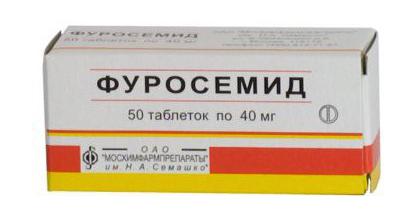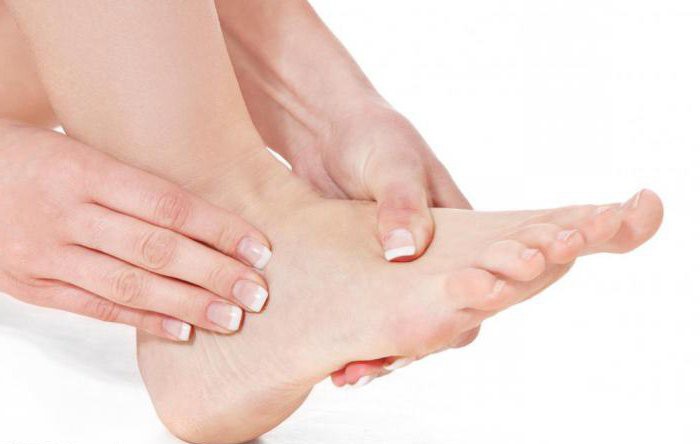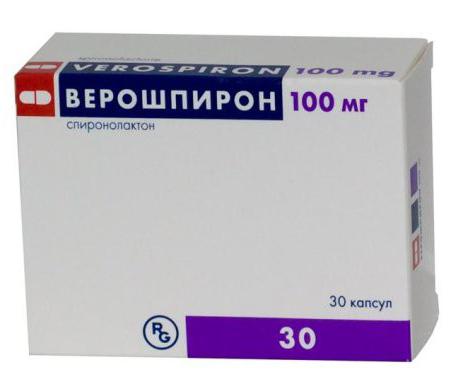Diuretic medicine for swelling of the legs
To get rid of accumulated excess fluid and lower blood pressure in modern medicine, drugs are also widely used that strengthen and make the vascular walls elastic. Any such medicine is prescribed depending on the size of the swelling and what caused it. These may be problems with the functioning of the kidneys, liver or heart. Diuretics, on the other hand, make the kidneys work more actively and thereby help to remove accumulated fluid from the body, which, accordingly, reduces swelling, lowers blood pressure and improves the patient's condition.
About the action of diuretics
Diuretics rid the body of accumulated fluid, and this is often used by athletes to drive weight before the competition and "dry" the muscles. The diuretic power of drugs is widely used for weight loss.
True, doctors strongly recommend not to handle diuretics too loosely. After all, the danger that the medicine for swelling of the legs can have a negative effect on the body is real and lies in the peculiarities of their action. The fact is that a diuretic can provoke the withdrawal of not only excess fluid, but also useful components - potassium, chlorine, magnesium and other important substances.
The main groups of diuretics
Depending on their action, all diuretics are divided into 3 main groups:
- thiazide (the effect of taking is observed after 4 hours and lasts about 12 hours),
- potassium-sparing (help to remove excess fluid, while not removing potassium),
- loopback.
The latter have the most powerful effect of exposure, and although its duration is short, these drugs are used only once, not using courses.
In addition to those mentioned, medicinal herbs with a diuretic effect are also actively used as an effective medicine against swelling of the legs. In addition, they are safer and cheaper than synthetic drugs.

What are the dangers of diuretics?
If the drug is taken for a long time and uncontrolled, then the sodium-potassium balance is disturbed in the body, which increases the patient's fatigue. In this case, the level of cholesterol in the blood may increase, which threatens the development of diabetes. And besides this, long-term use of the described drugs can cause calcium retention and, as a result, the deposition of salts in the joints.
Uncontrolledly taken diuretic drugs for swelling of the legs can cause the development of thrombosis, thromboembolism, acute urinary retention, etc. And in men, provoke problems with potency. New generation drugs such as Indapamin or Torasemide have a much lesser effect on metabolism, but even they can be harmful to health if abused.
Do not prescribe them to yourself on your own, because these remedies do not eliminate the cause of the disease, but only relieve its manifestations, and no matter how much you struggle with the symptoms, the disease will remain with you. Only a specialist can really fight it, having determined the true causes and prescribing adequate treatment.

What diuretics are taken for various diseases
Diuretics are good for congestion and, as already mentioned, help lower blood pressure. These drugs include Furosemide, Diakarb, Lasix, Veroshpiron, etc. They, however, are not prescribed for a long time, since the daily intake of these potent drugs is addictive and, as a result, a weakening of the therapeutic effect, but in acute conditions they are very effective.
What medications to take for swelling of the legs in the case of existing diabetes mellitus or varicose veins, only a specialist should decide. With such pathologies, diuretics can harm much more than help, since the cause of swelling in this case lies in the high permeability of the vascular walls and a decrease in their elasticity. Such patients, as a rule, are prescribed drugs that can strengthen blood vessels and normalize venous circulation: Detralex, Venorin, Dioflan, Troxerutin, Askorutin, etc. 
These drugs belong to angioprotectors and venotonics, and their regular use increases vascular tone, at the same time reducing congestion and relieving edema.
for heart disease
Fluid retention in the body is most often caused by disorders of the cardiovascular system, which, in turn, leads to swelling of the legs. It should be noted that such a condition is dangerous for the development of congestion in the lungs.
At the beginning of the disease, they prefer to fight with edema with the help of mild diuretics (they are referred to as thiazides), but if the disease progresses, then stronger (loop) diuretics are connected to cope with edema that has arisen even as a result of renal failure.
By the way, in order to avoid addiction, diuretics should be changed every two months. 
In pregnant women, swelling of the legs: treatment, medications
In a third of all women carrying a child, in the second half of pregnancy, swelling of the legs is observed. If at the same time no serious pathologies are found in the expectant mother, then she is prescribed plant-based diuretics: "Eufillin" (it cannot be taken on an empty stomach, in addition, the drug is contraindicated in women with epilepsy, heart disease and low blood pressure), "Fitolysin" (not taken in the presence of inflammatory processes), "Canephron" (virtually has no contraindications).
A salt-free diet also comes to the aid of pregnant women in such cases, effectively helping to remove unwanted swelling. In this case, a cranberry drink is also very useful, for the preparation of which the berries are ground with sugar, poured with water, and then taken in a glass three times a day.
Horsetail, birch leaves and buds, etc. are no less useful for pregnant women. But there are also plants that are not recommended for use while expecting a child: juniper fruits, parsley root and strawberries.

Edema in the legs in the elderly: drug treatment
Swelling of the legs in the elderly is quite common. Metabolic disorders in the process of aging of the body provokes the accumulation of fluid. Note that such a state can become a constant companion of a person and disturb from time to time.
But often the appearance of edema in elderly patients is a signal of the developed pathology of the kidneys, chronic diseases of the lungs or the cardiovascular system. Therefore, it is impossible to choose a medicine for swelling of the legs on your own. The patient needs a medical examination and an accurate diagnosis.
If the doctor nevertheless prescribes a diuretic, then elderly patients should be wary of violations of the water-salt metabolism caused by these medications. As a result, the body can lose a lot of potassium, which is extremely important for heart function. Therefore, physicians, as a rule, do not prescribe diuretics for such patients for a long time, and they take a break between courses of taking these medicinal substances.
Before a course of treatment with diuretics, patients are advised to create an increased background of potassium in the body by taking Asparkam, Potassium Orotate, potassium chloride, etc. And while taking patients, vitamins and glucose are prescribed for better absorption of the said substance by the body. 
Prevention of the development of edema of the legs
Even if the problem we are considering does not bother you so often, so that you do not need medicine for swelling of the legs as long as possible, you need to follow certain rules.
- Avoid shoes with very high heels or completely flat soles.
- Eliminate salt from your diet.
- Keep an active lifestyle (small warm-ups and walking will help to avoid swelling).
- When you go to bed, place a rolled-up blanket or pillow under your feet.
It should also be said that some drugs have side effects in the form of edema on the legs. Talk to your doctor about this, let him tell you how to get rid of the problem. Your specialist may change your medications for more suitable ones.

A few last words
Swelling of the legs is a problem familiar to a large number of people. And do not be afraid to come to a specialist with a question about which medicine for leg edema is suitable in a particular case. After all, perhaps edema is only the tip of the iceberg, and the patient is not even aware of the serious pathological processes taking place in his body. Therefore, self-medication is very dangerous.
If puffiness turns out to be only a consequence of fatigue or heat, then there are a lot of safe ways to eliminate this nuisance. The main thing is not to leave your body unattended and carefully observe the signs that it gives.




